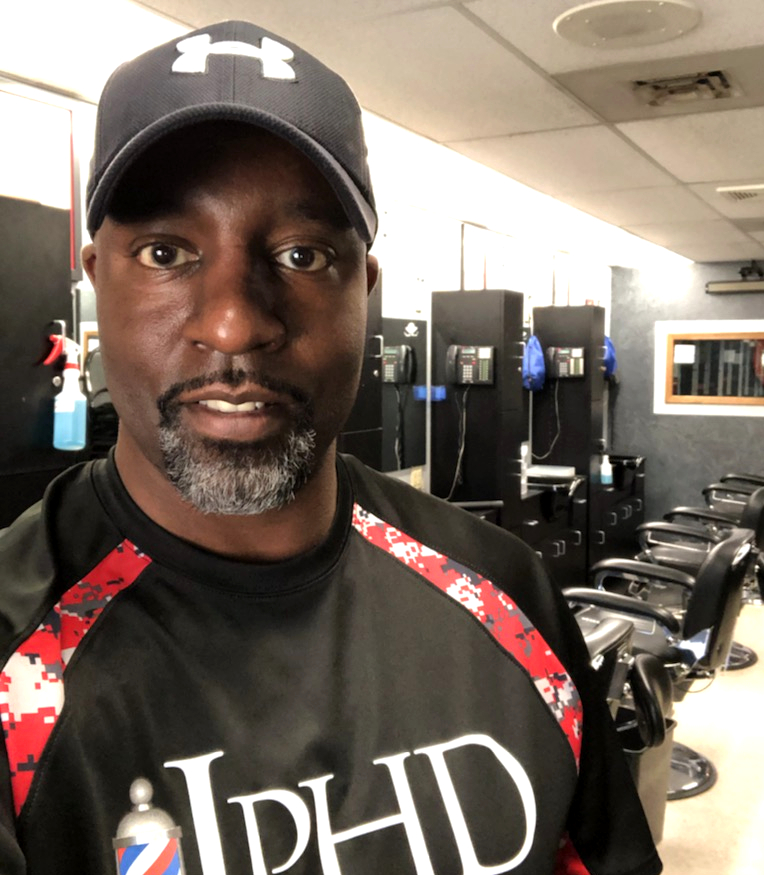Special promotional content provided by the University of Wisconsin Collaborative Center for Health Equity.
A new research program is looking for Black people aged 40 and older to take a 10-minute online survey about what would help them feel comfortable participating in medical studies. In a similar study in Maryland, 85 people participated in interviews in barbershops and salons; in Madison, JP Hair Design and the Rebalanced-Life Wellness Association are partners as well.
But the best way to help out is to call the study team at 608-709-9470 or email [email protected].

There are many reasons some people have a better chance of staying healthier than others. They may have access to better health care or live in healthier environments. Or, in some cases, prevention and treatment methods may be developed specifically for them and less so for others.
This last reason has gotten more attention in the past year in the fight to control COVID-19. According to the Centers for Disease Control, Black people have made up about 12.2 percent of all COVID-19 cases and 14.6 percent of deaths nationally. Yet only 9.8 percent of the Pfizer vaccine trial study participants and only 9.7 percent of Moderna trial participants were Black. The Johnson and Johnson vaccine trial was more successful and about 19.4 percent of participants were Black.
Even though these rates of inclusion in vaccine trials could have been much better, they were actually much better than usual. Most health studies and treatment trials dramatically overrepresent white participants.
The lack of equitable inclusion in health studies relates directly to the lack of equity in health. Generally, treatments are developed and tested on a small portion of the population. Most commonly these people are white, even when scientists are studying diseases and conditions that impact communities of color much more than white people. That includes COVID-19, but also diabetes, heart disease and some cancers.
In the news, we have seen this explained as a lack of trust. It’s understandable that Black people might be unsure about participating in health studies because of past research abuses and ongoing experiences of discrimination in health care. But while important, distrust is only part of the problem. Researchers, for their part, mostly don’t create studies that people feel comfortable joining.
The Just Research program, created by Dr. Susan Passmore and her team at the Collaborative Center for Health Equity within the UW-Madison School of Medicine and Public Health, is designed to learn from the community and help researchers build health studies that reflect their voices.
“The problem is not in the community,” Passmore said. “If people distrust us as researchers, it’s up to us to become more trustworthy.”
Passmore and her team are devoted to re-shaping health research so that it meets the needs of people who suffer poor health by working to ensure that the voices of those people are heard by scientists and health researchers. That includes, in part, listening to the people themselves through interviews and surveys. Dr. Passmore also runs a training program for young researchers and research teams at UW-Madison that she helped to develop at the Center for Health Equity at the University of Maryland. The Building Trust Program, so far, has trained more than 50 researchers to conduct research that avoids bias and is tailored to the needs of research participants.
And now, her team, including leading health equity scholars at the University of Maryland and at the UW-Madison, School of Medicine and Public Health such as Tyson Jackson, Gina Green-Harris and Dorothy Edwards, is conducting its own research study to learn what would make Black people interested in joining studies that ask people to give a DNA sample. The team is asking Black men and women aged 40 and older to take a 10-minute online survey to judge a series of possible research studies. Some people will also be asked to explain their choices in a 30-40 minute Zoom interview.
The team hopes to learn what factors help people feel most comfortable in joining DNA studies, which are important to the development of precision medicine treatments. In a similar study, done in Maryland, the team found that diversity on the research team and being well-informed about how their DNA was used mattered most to people. Like the current study, they also collected information about how participants viewed local institutions and hospitals and methods of collecting DNA.
“Researchers need to understand that the only way to improve diversity in health studies is to work together with communities and to create programs that reflect what people need and value, rather than what’s convenient for the researchers,” Passmore said.
Those interested can reach out to the study team at 608-709-9470 or [email protected].




























